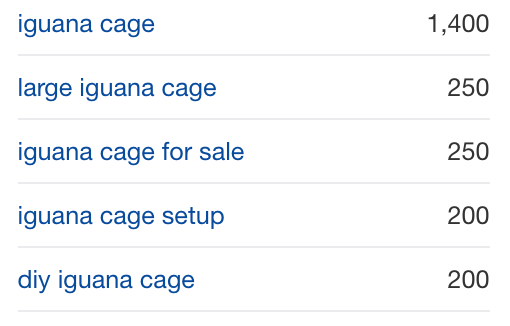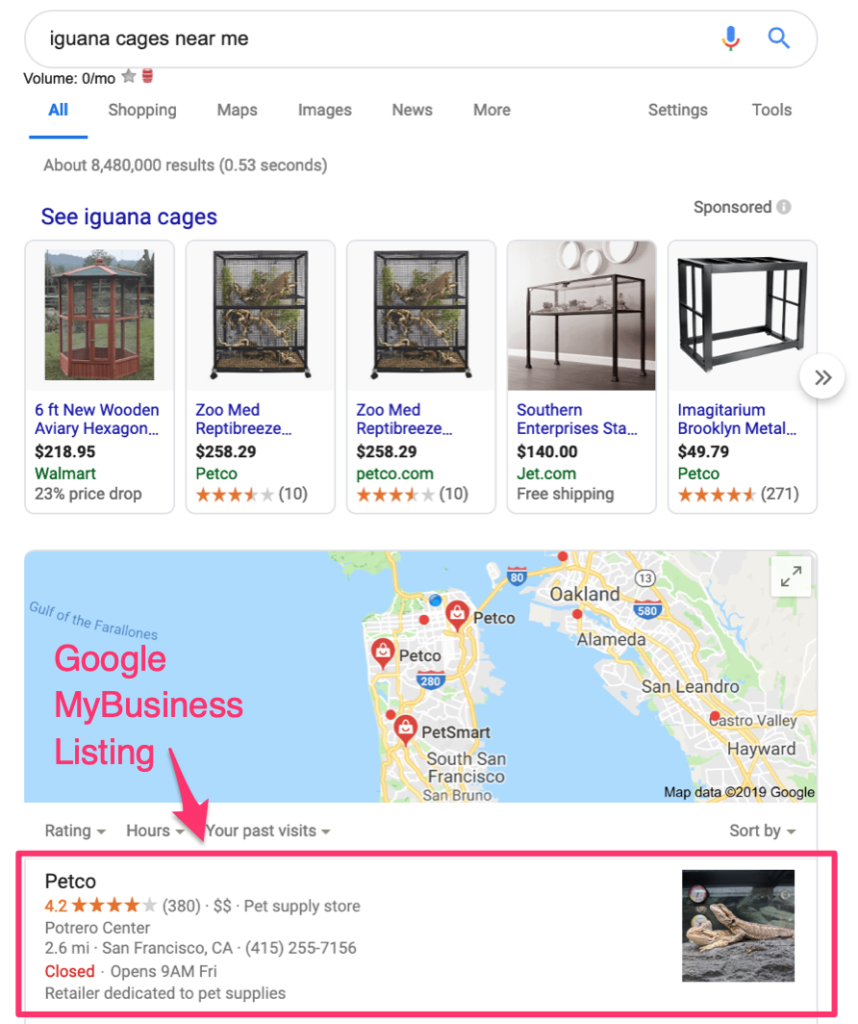As a small businesses owner, the deck is stacked against you when it comes to search engine optimization (SEO). You’re often competing in the search results page with websites and businesses much larger than yours, even if you don’t sell a competing product.
That means you need to make the most of your monthly SEO budget and aim for the wins that are within your reach.
Unfortunately, there are a ton of monthly SEO packages out there from all types of agencies and consultants. They’d like to sell you their cookie-cutter package because it’s easier (and more profitable) for them. But do you really need everything they’re trying to sell you?
I’ll share what I’d recommend as a basic monthly SEO package for a small business. For each category, I’ll list the most important factors. That doesn’t mean they’re the only factors, but my goal is to help you separate what’s important to focus on now from what can wait until later. That way, you can avoid wasting your time and money.
Here are the main components:
- Monthly Technical SEO
- Monthly Content Creation
- Link Building
- Local SEO (if you’re a local business)
Monthly Technical SEO Packages
Technical SEO is the foundation of SEO. But don’t let that make you think you need to invest a ton of time or money on it.
At a minimum, you should ensure that the agency or consultant you’re working with is reviewing your site for common technical SEO errors.
Google Webmaster forum posts like this one are a great place to see all those basics listed out. It might look intimidating, but you don’t need to understand everything
Most websites don’t need this as a monthly service. It’s typically something that can be done within the first month or two.
There is a lot more that goes into technical SEO, but in my opinion, small businesses with smaller websites (less than 100 pages total) don’t typically need Technical SEO work done every single month. In fact, barring any massive chance to Google’s guidelines, I’d say for most small businesses, you’re fine doing a technical audit/update just once a year.
Tips for Technical SEO:
- Make sure you just have the basics taken care of.
- Have the agency or consultant you’re working with do an initial audit, fix any glaring issues, and move on.
- Past the first month or two, Technical SEO updates are usually a waste of money for smaller websites because there shouldn’t be much left to do.
Monthly Content Creation
Content creation is another trap that small businesses often fall into. Business owners get the idea that to succeed in search, they need to be publishing new blog posts or articles every single week (or even multiple times a week).
Creating new content regularly is important, but not for the reason you might think. Many agencies will advocate creating lots of content to keep your site “fresh.” In fact, “freshness” is something Google has explicitly stated they don’t care about. Why would you invest money in something like that?
The real benefit of creating content regularly is that it ensures you’ll be generating enough of it. Essentially, the more blog posts, articles, or guides you create, the more search queries your website will show up for.
But there’s a risk here. Many SEO companies will do “keyword research” to identify topics to write about. That means they’ll just look at the most popular keywords containing your product or service, and use that as a content-creation checklist.

The issue here is they might recommend writing a bunch of articles that don’t really fit together. Or worse, articles that compete against each other in search. Would you rather have 2 mediocre articles that rank on page 2? Or 1 great article on the first page? I know what I’d choose.
The right way to create content is to organize it into tight, topical clusters. You want to be authoritative across the topics most related to your business. That way, your content will be high quality enough to have a chance to rank highly in search.
So, to make the most of your budget, I’d recommend making sure your content plan is focused on useful, high-quality content creation. Even if it means creating less content overall. That’s what Google says is important for ranking.
Work with your SEO agency or consultant to develop a plan where you can create at least one piece of high-quality content per month that potential customers will find useful. Avoid the temptation to promote your products or services, let your home page or product pages do that. Instead, focus on making something great that will be useful for potential customers.
Tips for Content Creation:
- Quality is the important thing (not quantity)
- You don’t have to create content for every keyword under the sun.
- Focus on a strategic plan to make fewer, better pieces of content.
- Ask for recommendations to focus on content that will perform the best first
Link Building
I’ve written before about how important links are for SEO. This is especially true for smaller websites. For small businesses, your competitors will generally have a lower number of quality links. That means earning just a few links from other trustworthy sites can help you climb up in the results, making a huge difference in visibility and traffic.
But quality link building is really hard. That’s why a lot of SEO companies and consultants resort to shady/spammy ways to get links. In the best case, links that are gained this way are a waste of money. In the worst case, they can actively hurt your rankings.
So what can you do to protect yourself? Ask whether link building is included in your monthly SEO package. Then ask how those links are generated. If the person you’re working with tells you they buy links, or pay for placements on websites, it’s probably not in your best interest.
A big red flag would be if you were promised or guaranteed a certain number of links. That’s basically a recipe for spammy links.
Instead, your SEO agency or consultant should recommend one of two methods:
- Creating high quality content, then doing custom outreach (usually sending personalized emails) to try and get other websites to link to that content
- Some form of PR, where they’re pitching news sites about your business in an effort to earn media placements (and associated links)
Just use common sense. Does the link building method seem too good to be true? Does it seem hacky or spammy? If so, you might want to think twice about your SEO package.
Tips for Link Building:
- Like with content, quality is much more important here than quantity
- Most paid link acquisition programs are likely to hurt you, not help you
- Ask specifically: “how will you get links to my site? Will you be buying any links?”
- Focus on earning links the hard way: by creating great content and getting the word out about it.
Local SEO
If your business mostly serves customers in a specific geographic area, you’ll want to pay special attention to local SEO. This is a subcategory of SEO that’s focused on helping your website show up when people search for businesses near them. There’s a lot that goes into local SEO, but a monthly SEO package should include these basics at a bare minimum:
Google MyBusiness Listing
This is what shows up on the map search result (in both Google Search and Google Maps). Having your MyBusiness listing completed properly is table stakes for showing up in local searches. Make sure your monthly SEO package includes optimization of this listing.

To get an idea of what a good MyBusiness listing looks like, do a search on Google maps for a business like yours in a big city near you.
Notice how the top listings tend to have their listings fully filled out? They have their business category listed, along with their hours. And they probably have some photos and good reviews. That’s all key.
Those listings will almost always have a link to their website. Many will even have special features in their the listing, depending on the type of business (for example, restaurant listings often include a menu).
That should give you a clue as to what’s important in your industry in a MyBusiness listing. The monthly SEO package you choose should include a plan to ensure your listing is as good as it can be.
NAP/Directory Listings
To Google, your business Name, Address, and Phone number (NAP) are your business’s basic identify. It would look weird to Google if this information didn’t match from one source to another. That’s why of the key SEO activities for local businesses is making sure your NAP is consistent across the internet.
That means making sure you’re using the same name, address, and phone number on your website, in your MyBusiness listing, and anywhere else your business appears (including review sites like Yelp, and only directory sites like Yellow Pages).
Whatever SEO service you use, make sure they call this out specifically as part of their service.
A Final Word
There are hundreds (possibly thousands) of agencies and consultants offering monthly SEO packages out there. Sometimes, they’re going to count on a small business owner not knowing much about SEO to sell you the biggest, most involved package they have.
But in most cases, your small business will be fine with a reasonable, focused set of SEO services. Make sure you don’t waste money on an overly-complicated set of services. Instead, focus on those activities with the highest ROI first.

I run a small SEO consulting business in San Francisco, CA. I like to write a little bit and get in arguments with my friends. It’s the only way I can make sense of the world.
